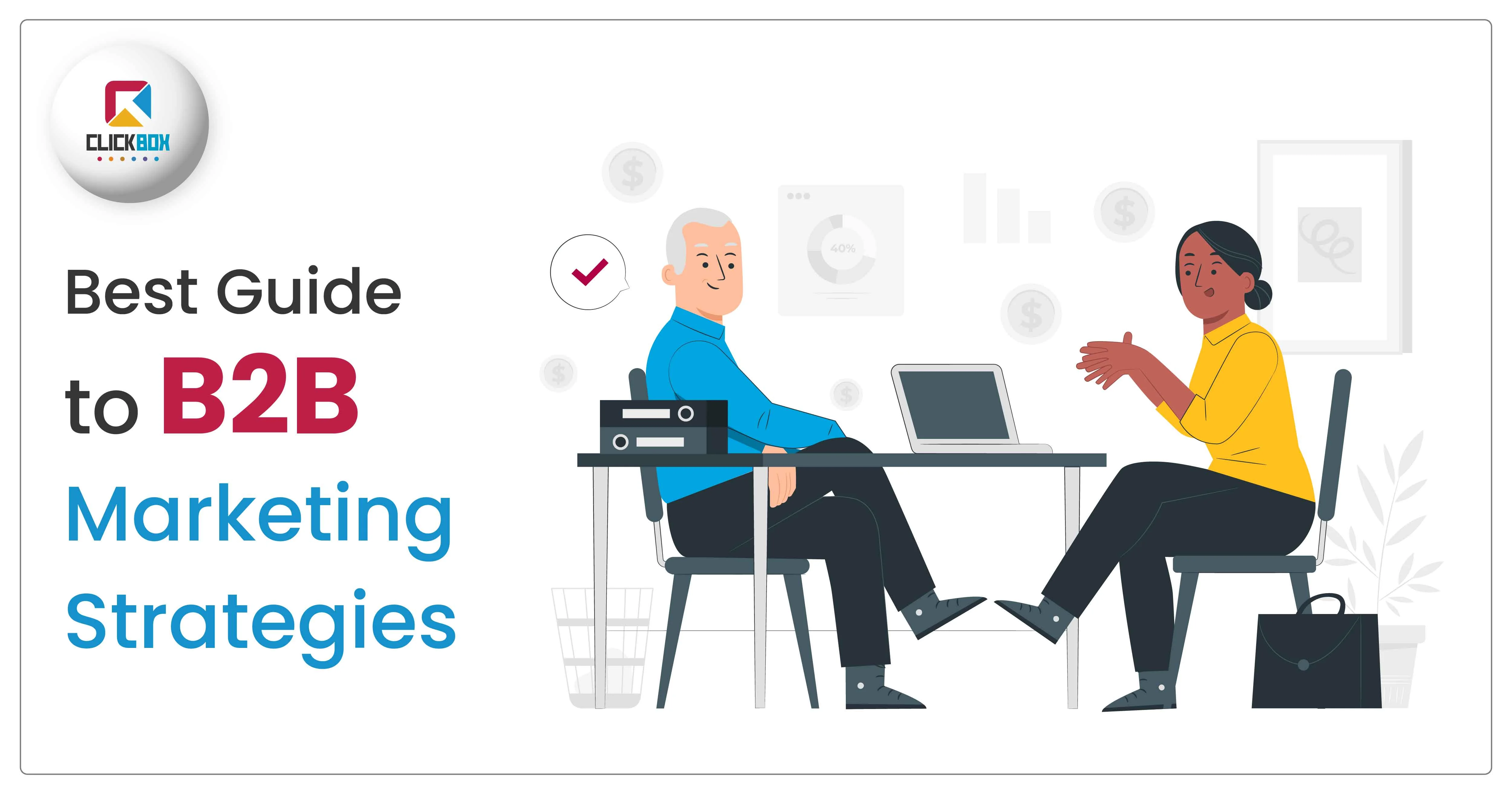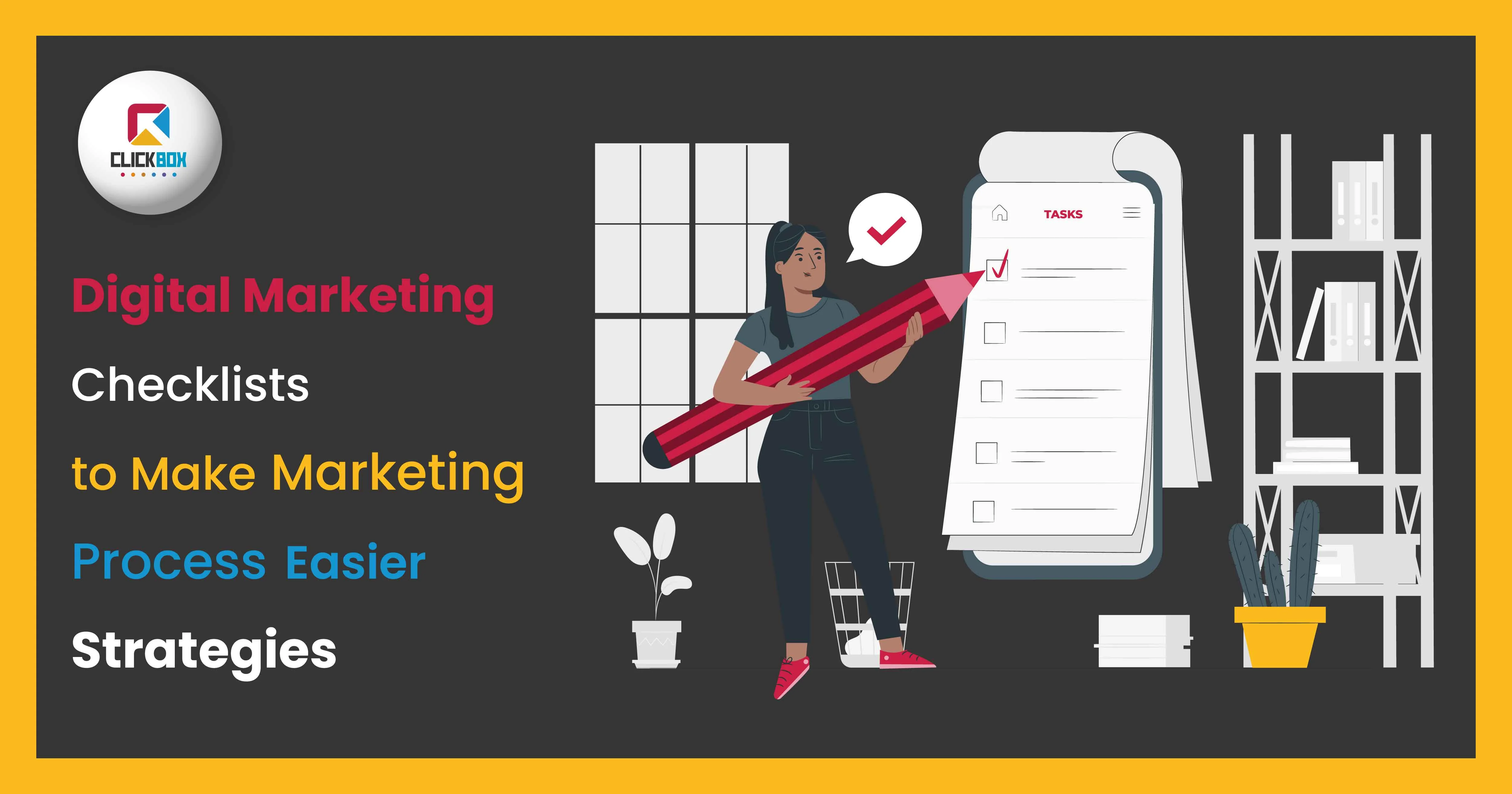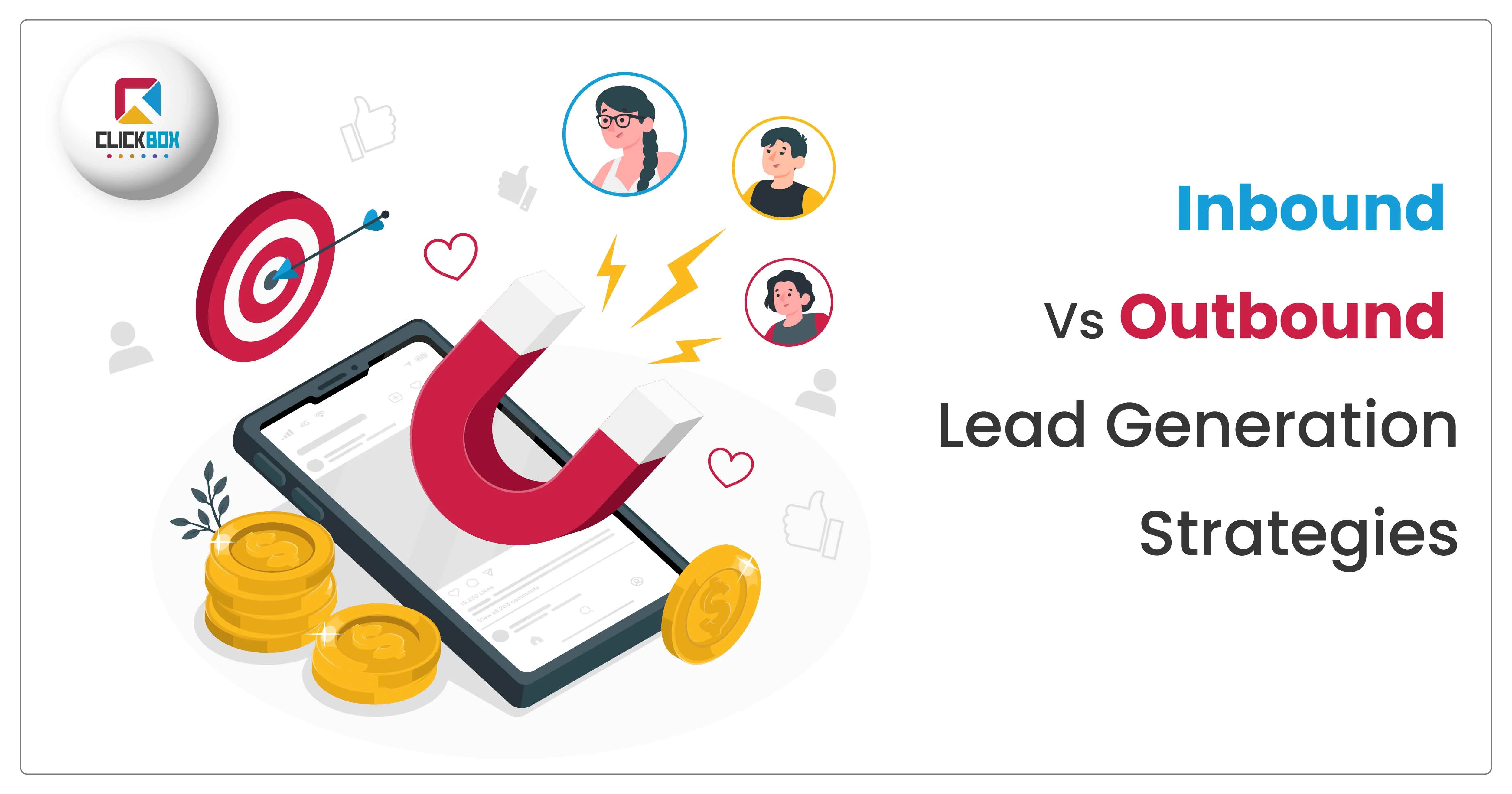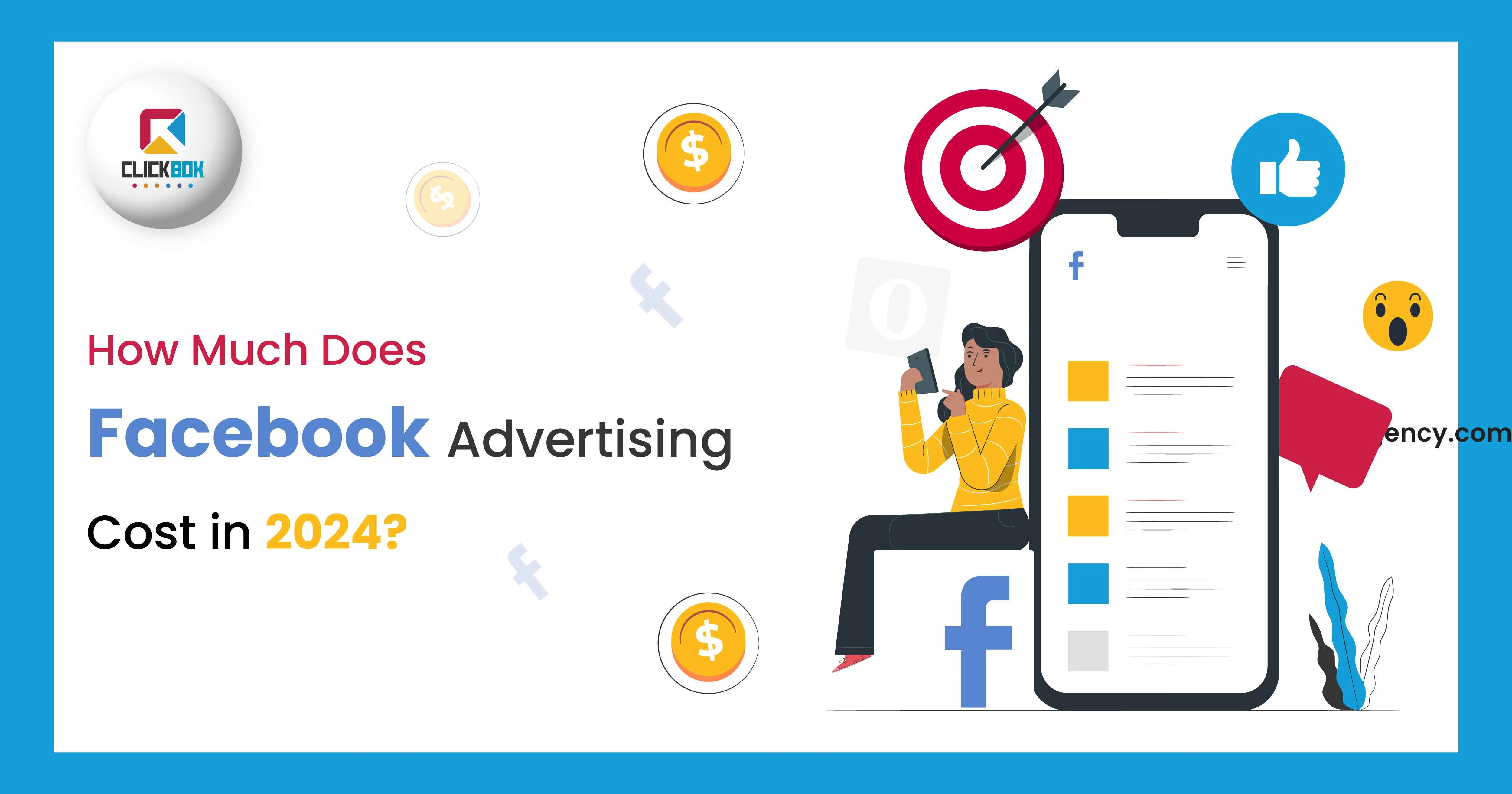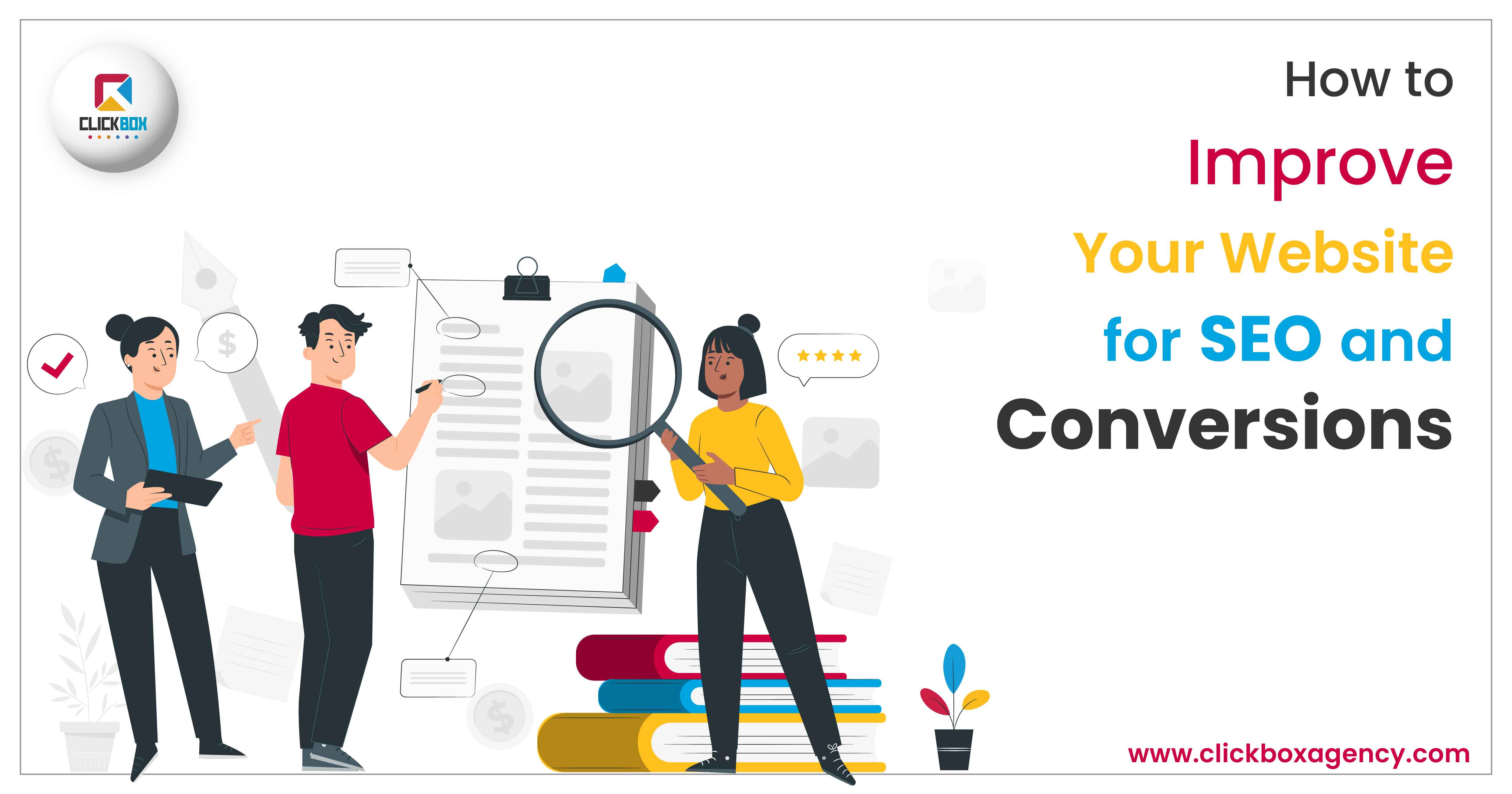
How To Improve Your Website For Better Seo And Higher Conversions
How effectively you optimize your site for search engines and conversions will determine how successful it is. It'll make sure your site is putting in the effort it requires to succeed.
If you have good SEO, you can get more traffic from search engines and have more chances to turn visitors into customers. In the digital world of today, a well-optimized website is no longer a nice-to-have but a must-have. With so many websites trying to get people's attention, it's important to make sure yours stands out. SEO (search engine Optimization) comes into play here. By using good SEO tactics, you can make your website more visible on search engine results pages, get more organic traffic, and increase your online profile as a whole.
But where to begin? How do you make your site SEO-friendly? In this piece, we'll go deep into the world of SEO and find out how to make your website as visible as possible. From keyword research and on-page improvement to technical SEO and link building, We will give you tips and information that you can use to move up in the search engine results and get more targeted traffic to your website. Is it time for you to upgrade your website? Let's get going.
What is SEO?
SEO stands for Search Engine Optimization. It refers to the process of optimizing a website and its content to improve its visibility and ranking in search engine results pages (SERPs). The goal of SEO is to increase organic (non-paid) traffic to a website by making it more relevant and valuable to search engine algorithms.
This blog is going to provide ample answers to your following questions, such as
- ● How do you optimize your website for SEO?
- ● How do you optimize your web, Google, And local SEO?
- ● How do you implement your website's SEO?
- ● How do you optimize your website for SEO?
Search engines like Google, Bing, and Yahoo use complex algorithms to determine the relevance and quality of websites when displaying search results. SEO involves various strategies and techniques to align a website with these. In addition, it improves the chances of ranking higher in search results with the aid of relevant keywords or phrases.
Some key elements of SEO include keyword research, on-page optimization (optimizing website elements like content, meta tags, headings, and URLs), off-page optimization (building high-quality backlinks from reputable websites), technical optimization (improving website speed, mobile friendliness, and crawlability), and user experience optimization.
By implementing effective SEO practices, websites can attract more organic traffic, reach their target audience, and improve their visibility, ultimately leading to increased brand exposure, customer engagement, and conversions.
What Are The Three Types of SEO?
- On-page SEO.
- Off-page SEO.
- Technical SEO.
What is On Page SEO?
This covers all the things you do to make your website rank higher on search engines. On-Page SEO includes writing high-quality content with the goal of helping your website visitors, adding meta tags to help Google bots better understand your content, using HTML tags to highlight headings and other content elements, and making sure there are no broken links or duplicate content/pages.
A few other on-page SEO methods include cleaning up the URL structure and using an ordered naming system for similar pages that belong to the same group, choosing pictures that aren't too big and giving them meaningful file names, etc. If you want to learn more about SEO, all you have to do is visit our website. It will show you a lot of different things about on-page SEO.
On-page SEO refers to the technical steps that are taken to improve a page's search engine exposure by improving its tags, text, pictures, internal links, and other parts
It is one of the most important types of SEO in digital marketing because it directly affects how your website ranks and how visible it is generally. There are a lot of things that go into making a page's on-page SEO as good as it can be. A guide for SEO on the page can help you improve not only the look of your page but also how it works as a whole.
How to optimize your website for SEO through on-page
On-page SEO is the most fantastic way to optimize your website for SEO. It is the main factor that sends a signal to Google about all your websites and elucidates how they facilitate their target audience by providing valuable and worthy content. It is that which makes you stand out to both Google's search engine and your target audience. Each and every fragment of your page completely depends on you, and you are responsible for its increase and decrease. The quality of your content plays a vital role in optimizing your page for SEO.
Here are some tips to optimize your website for SEO through on-page
- Creating high-quality content
- Using headers
- Creative meta description
- Implementing Page URLs and
- Internal linking
If you want to get elaborate content, click on our site (on-page SEO) to get new experiences with wisdom.
Important factors in on-page SEO include:
Site Speed: How fast your website loads can make a big difference in how many people stay on it instead of leaving. It is a very important part of SEO on a page. Using on-page SEO methods like improving HTML codes, refining meta tags, reducing links on pages, and optimizing the size of media on pages will make your site run much faster. The speed of your site is one of the most important factors in how high it shows up in search results.
Even Google takes the speed of your site into account when deciding where to put it on the search page. Improving the speed of your site will help you rank as quickly as possible. You can speed up your site with the help of tools and methods that work well. GTmetrix, Pingdom, Ahrefs, and Google Analytics all measure how fast a site loads. Google Analytics, SEO, and these great site helpers are all needed. Fosmile's speed uses Speed Page to grade your site from 1 to 10 on both mobile and desktop.
Image Optimization: This on-page SEO method has two parts: reducing the size of pictures and other media on your website so it loads quickly, and making sure the alt text of images is optimized so search engine bots can see them better. Putting the right keywords in the alt text for your images can help search engines find your page and boost your website's score.
Internal Linking:This on-page SEO step involves adding internal links to your pages. Internal links can make it easier for search engine crawlers to find their way around your website, find new and linked content, and rank pages based on how relevant they are. This process also makes it easy for users to find related information on your website without having to click more than once.
What is Off-Page SEO?
Off-page SEO is everything you do outside of your site to help it do better and move up in Google's SERPs (Search Engine Results Pages). It means working on things like building links from known sites in the same category as you, doing well with social media marketing, getting customers to write good reviews about you on different online boards, etc. Read our full post on off-page SEO techniques if you want to learn more.
ff-page SEO is another type of SEO that has a lot to do with how your website ranks. Off-page SEO is everything you do for SEO that is not on your website. This can include getting backlinks from websites with a lot of authority in your field, promoting on social media, getting reviews, and a lot more.
Link building and getting backlinks are the most important parts of off-page SEO improvement. Link building is the process of getting links to your site from other relevant sites. This shows the search engines that your content is valuable and authoritative.
Getting backlinks to your site from other sites with a lot of authority in your field is a great way to show search engines that your content is high-quality, reliable, and relevant. Even though it may be hard to figure out the exact effect of one backlink, getting one from a website with a lot of authority can make a big difference in your results and domain authority.
Your business can grow with the help of social media outlets. If there is a lot of talk about your website or its content on social media sites like Twitter, LinkedIn, Facebook, etc., search engines will make it easier to find your website. When people share or talk about your content on social media, it can bring you a lot of free traffic, which is good for your SEO.
What is Technical SEO?
Technical SEO is mostly meant to help Google bots understand all of your site's pages so that they can be used in the future. Some of the methods used are making a detailed XML sitemap that works on mobile devices and adding organised data to help web bots sort and group your pages based on the type of content they have. For more information, check out our in-depth post on what technical SEO is.
Technical SEO is a type of SEO that includes improving a website's performance and SERPs (Search Engine Results Page) by reviewing and optimizing technical parts on-site. Technical SEO is mostly about improving your website's speed and how well it works. For example, search engines like Google often rank websites higher if they have a style that is easy to read and a structure that is easy to crawl. Search engines also favor websites that work well on mobile devices and are easy to use. Search engines could even lower your site's ranking if it has bad technical SEO.
This kind of on-page SEO has a lot of different parts. For example, you can speed up the time it takes for your page to load by using a safe HTTPS connection and storing information for any video on your page. Other technical SEO aspects include uploading sitemaps, improving the HTML code, meta tags, alt texts, and more.
Another important part of technical SEO is making sure that each page's HTML is as good as it can be. Schema code is a way to tell search engine algorithms exactly what is on your web pages. This makes it easy for the crawlers to figure out what your page is about, what's on it, and more. In the same way, giving your page the right kind of redirects can also make it healthier.
5 Reasons to Optimize Your Website's SEO Conversions
There are numerous reasons why it is essential to optimize your website for both conversions and SEO. Let's explore five specific reasons that emphasize the significance of continually optimizing your site.
Make your website helpful for the people you want to see it.
Sometimes marketers may feel at odds with search engines like Google when their best content fails to rank or experiences a significant drop in traffic after an algorithmic update. However, it's important to understand that your goals and Google's goals align in several ways:
- ● Creating the finest material you can for your readers
- ● Making your website enjoyable to use
- ● Prioritising content that offers substantial value
- ● While Google analyzes millions of websites, you should focus on analyzing the behaviors and preferences of your specific audience.
By incorporating SEO techniques, you select primary and related keywords aligned with search intent, craft compelling content that resonates with your audience, and ensure that your website provides all the necessary meta information to help search engines understand your content.
Optimizing your website for conversions involves guiding visitors towards a specific goal, whether it's encouraging them to join your email list or enticing them to purchase your products. Just like Google, your aim is to deliver exactly what your audience desires.
By understanding how to optimize your website for both SEO and conversions simultaneously, you can further these goals and establish a stronger relationship between your site and search engines.
Grow Your Organic Traffic
The average business typically spends around 1 percent of its total revenue on advertising. For instance, if your business generates $1 million annually, you might allocate $10,000 for advertising purposes. While this may seem like a relatively small percentage, the costs can add up, especially in industries like retail, where advertising expenses are considerably higher.
On the other hand, attracting organic traffic through SEO is a cost-effective strategy. Although you need to invest time and resources in developing and promoting your content, it is significantly more affordable compared to pay-per-click advertising. Off-page SEO also plays a vital role in increasing organic traffic.
Furthermore, studies have shown that organic search visitors have a significantly higher conversion rate compared to paid search visitors. By investing in growing your organic traffic, even though it may take longer to see results, you can enjoy long-lasting outcomes and generate more conversions.
Capitalize on existing traffic
When visitors land on your website, your goal is to leave a lasting impression and encourage them to return. Understanding how to optimize your website for conversions requires a deep understanding of the user experience. Analyse how visitors navigate your site, identify their scrolling patterns, and determine the frequency of clicks on your calls to action (CTAs).
When someone signs up for your email list, you can establish future communication with them by sending offers, incentives, and more. You can also encourage visitors to follow you on social media, explore your product pages, and read your blog posts.
By understanding the needs and preferences of your audience and presenting attractive offers in an appealing manner, you can increase your chances of converting visitors into customers.
Force your website to work harder
Anyone can create a website, even a visually stunning one. However, building a website that consistently generates conversions is a more challenging task. The average conversion rate across all industries is less than 2.5 percent.
To achieve higher conversion rates, you need to closely study your audience and provide them with what they need and expect. By conducting thorough research and applying data-driven insights to your website, you can anticipate a significant boost in conversion rates. When visitors find what they are looking for quickly and effortlessly, they appreciate your brand and develop loyalty.
While conversions are important, it's crucial to prioritise SEO because, without traffic, conversions are unlikely to occur. Therefore, create a website that offers valuable and engaging content while providing ample opportunities for visitors to convert.
Give your viewers what they expect and what they want.
Consider the following scenario: You operate an e-commerce site selling shoes. A customer searches for the best running shoes on Google, and your website appears in the search results. They read a comprehensive blog post you've written about choosing running shoes, including brand recommendations and information tailored to different types of runners.
At the end of the article, you offer a free sizing and fit chart for runners as a lead magnet. The visitor signs up for your email list and promptly receives the lead magnet. A few days later, you send them a coupon code for your online store, along with images of running shoes. The customer realizes that your website meets their needs, and the discount incentivizes an immediate purchase.
This example demonstrates the symbiotic relationship between SEO and conversion rate optimization. When you meet the expectations of your audience and assist them in finding what they want, you increase the likelihood of securing a customer.
Optimizing Your Website for SEO in 8 Simple Steps
To begin optimizing your website for SEO, follow these steps to boost your search rankings and draw more traffic. Once you have implemented these strategies, you can shift your focus towards conversions while consistently updating and releasing fresh content.
Analyse your website's data comprehensively: Collect and examine various data points to identify patterns and gain insights. User behaviour reports and Google Search Console data are valuable tools for understanding how visitors interact with your site, such as their browsing patterns and session durations. Analyse referral sources and identify high-traffic and high-conversion pages to replicate their success.
Conduct thorough keyword research: Utilise tools like Ubersuggest and Ahref to discover keywords related to your business and industry. Look for long-tail keywords that align with your target audience's search intent. Create in-depth articles that provide comprehensive information on the chosen topic.
Produce valuable and lengthy content: Aim to create content that exceeds the recommended length of 1,600 words for blog posts. Research the top-ranking pages in the search engine results for your primary keyword and match or surpass their word count.
Optimize for on-page SEO: Focus on optimizing specific pages by incorporating primary keywords in headlines, subheadlines, URL slugs, and meta tags. Maintain a keyword density between 0.5 and 2.5 percent, ensuring that your content remains natural and avoids keyword stuffing.
Optimize for off-page SEO: Enhance your website's SEO through external means such as guest blogging, social media activity, influencer marketing, and brand mentions. Prioritise acquiring backlinks from well-respected publications in your industry.
Optimize your website for mobile devices: With the increasing number of people accessing websites through mobile devices, it's crucial to ensure that your website is mobile-friendly. Responsive design is a recommended approach, as it automatically adjusts the layout and functionality of your site to suit different screen sizes.
Improve page speed: Page speed is important for both SEO and conversions. Use tools like Google's PageSpeed Insights to identify and address issues that affect your site's loading speed across various devices.
Build quality backlinks: Backlinks play a significant role in improving your website's rankings. Focus on obtaining high-quality backlinks from reputable sources in your industry. Reach out to influencers and relevant blogs and share your content with them. You can also mention their content in your articles and notify them about it.
Can SEO Boost Website Conversions?
While optimizing your website for SEO is crucial, you may wonder how it impacts your conversions. It's important to note that achieving immediate results in rankings takes time and effort, considering the vast amount of content available online. However, by implementing effective SEO strategies, you can still improve your conversions even with low traffic.
SEO enhances conversions by driving the right audience to your content. When you clearly define the purpose of a page and align it with search intent, Google can accurately rank it for relevant searches. When you recognise the value of your content combined with attractive offers, the likelihood of conversions rises.
Optimizing Your Website for Conversions: Improve the User Experience
Improving the user experience on your website is crucial for boosting conversions. A positive user experience ensures that visitors can easily navigate your site and find what they're looking for. For conversions on your website, pay attention to even the smallest details. Examine every element of your homepage and evaluate its impact on the user experience. Remove any elements that don't contribute to driving visitors towards your desired actions.
To gain deeper insights into user behaviour, use user behaviour tools. Heatmaps, for example, provide valuable information on where users click the most, allowing you to strategically position important elements on your pages.
Conclusion
While SEO can be complex, understanding its fundamental principles provides a strong foundation for success. Start by collecting and analysing data, conducting thorough keyword research, and creating content that surpasses your competitors. how to implement SEO on a website, separate strategies for on-page and off-page SEO, ensure mobile-friendliness, and focus on acquiring high-quality backlinks.
Simultaneously, optimize your website for conversions by enhancing the user experience. Pay attention to user behaviour reports and make data-driven improvements to your site. Over time, with consistent effort, you will observe increased traffic and conversions as a result of your hard work.
Remember that even older content can continue to generate traffic and conversions, so don't underestimate the value of creating evergreen content. By combining effective SEO practices with an optimized user experience, you can drive sustainable growth for your website for years to come.
ClickBox Advertising and Marketing Agency
Clickbox Agency is a digital marketing company with clever people who work all over the world. A digital marketing business that offers a full range of services and helps brands connect with the right peopleWe are known for giving your business a digital edge by using the latest online marketing methods and cutting-edge tools. With "ClickBox Internet Marketing Agency" on your side, you can beat your competitors and stand out from the crowd.
The Clickbox firm specialises in SEO, Social media, PPC, Content marketing, mobile website design, and e-commerce creation. We help businesses use e-commerce to get more sales, leads, and money. All we want is to see you succeed in business, and we care deeply about you. Get in touch with us right away to get your job started.


